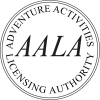Going on an expedition, whether it be by foot, kayak or canoe, can be one of the most exciting and rewarding experiences that allows you to see parts of the country that otherwise may not be reachable. Wild camping may be a new experience for many, and planning your menu for an expedition can leave you scratching your head as you gaze at supermarket shelves, pondering your choices for appropriate expedition food. There are several considerations to keep in mind when making your selections, and I hope this article will provide you with some good advice to make your pre-exped supermarket trip just that little less stressful.
GET ENOUGH ENERGY
So one of those burning questions- how much food should I take?
Whether you are embarking on a canoe expedition of the Great Glen Way, a descent of the River Spey by touring kayak, or a hike along the West Highland Way, your body needs energy and lots of it. In ‘Hillwalking’ by Steve Long, a daily allowance of 3,500 calories is suggested as an average starting point for a day on the mountains. Research suggests that an hour of canoeing can burn between 300-500 calories. So when perusing the shelves of dehydrated meals proudly stating ‘less than 300 calories’, don’t think this is a good time to shed some pounds. The food you take on expedition should be deliciously calorific. High energy snacks such as nuts and flapjacks are a great way to get some calories in without bringing the whole kitchen cupboard with you.
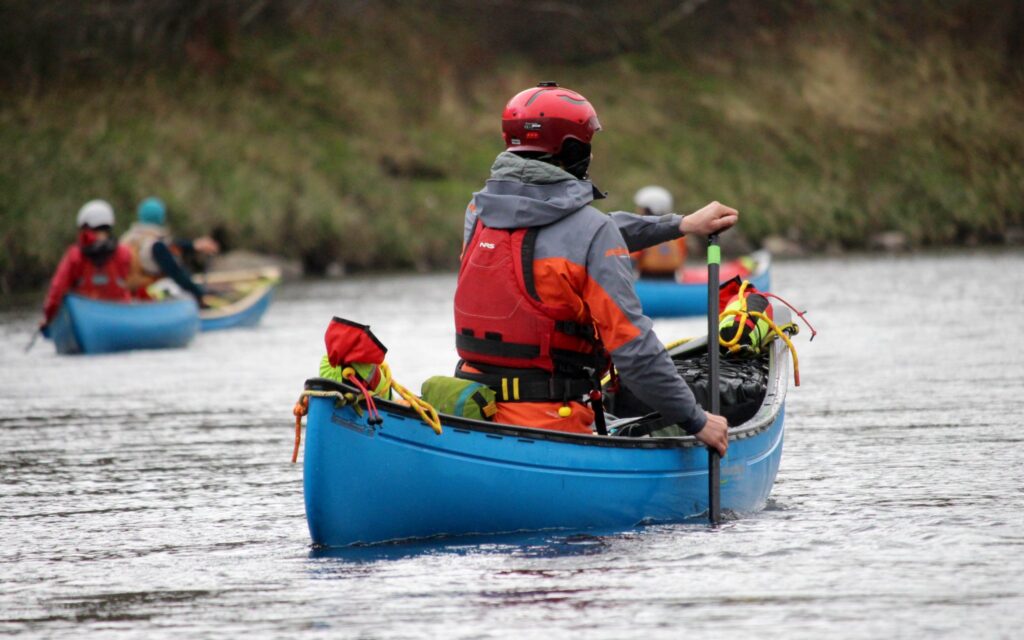
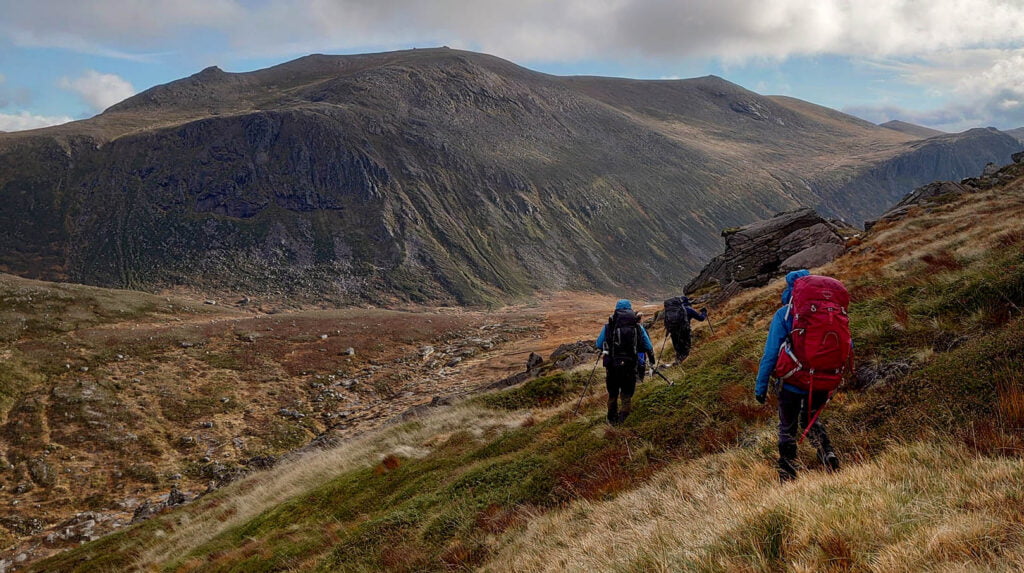
DON’T BREAK YOUR BACK
A main consideration is the fact that you will be carrying your food for the entirety of your trip with minimal access to shops and/or bins, so excess food and waste is not a good idea. Carrying a 5kg sack of pasta up a mountain is far less desirable than bringing just the amount you need. If you are travelling by canoe or kayak, though you have a bit more leeway than a walker with a backpack, you still need to consider the amount of space you have in your bags and barrels, and also the inevitable carrying of all your kit on portages. Bringing sachets of rice/pasta means you only bring the amount you need as portions are already sorted for you. Prepare lunches before your expedition- Don’t bring a loaf of bread, tub of butter, jar of mayo and all the fillings. Pre-made reduces the weight you carry and makes life easier. Pre-portioned and pre-prepared meals cut down on excess supplies and reduces the weight you are carrying, as well as making life easier when you get to the campsite.
LESS PACKAGING IS MORE SPACE
As ambassadors for our environment, we follow the rule of leave no trace. This means we need to take all our rubbish with us, so food in light-weight packaging such as sachets is preferable to tins and jars. Avoid buying a 5 day supply of meal deals as it leaves you with lots of rubbish. You are better off making your own sandwiches and wrapping them in cling film or foil. If you are on a canoe expedition this may not cause as much of a problem as you have a boat to carry your rubbish bag for you (touring kayaks have much less space). Therefore a canoe trip can open many more luxurious options for your expedition food.
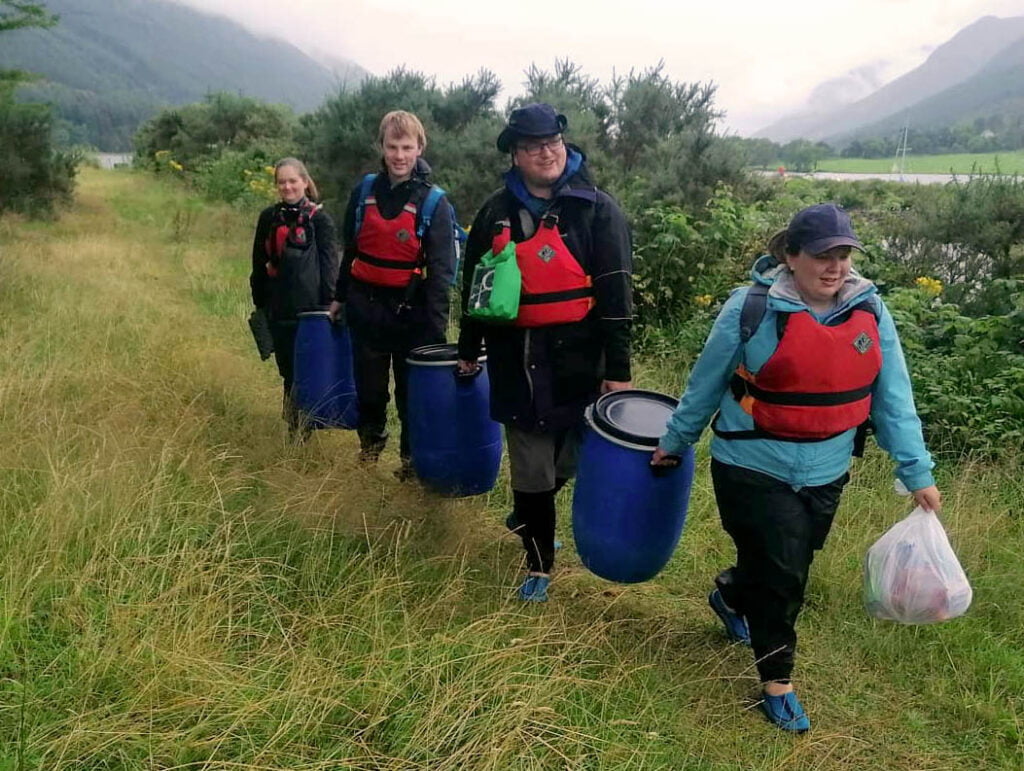
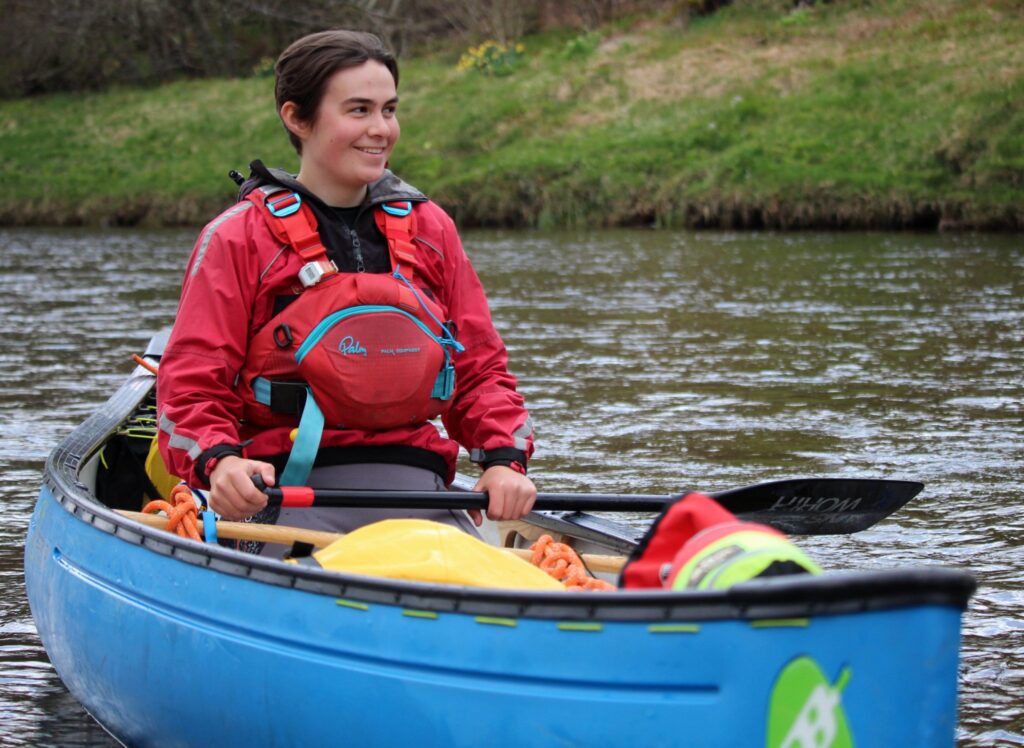
AVOID FOOD THAT SPOILS
The last thing you want to do is reach into your pack and bring out a sad, bruised banana that has mischievously been smearing itself over the contents of your bag. Packing food that gets squished and bruised or crumbles before your eyes will leave you with an unsatisfactory snack. Unless you are planning to bring a mini fridge as your luxury item, you will also need to avoid food that requires refrigeration. Although a bacon sandwich midway through an expedition would be a great moral boost, the reality of 3 day old meat slapped between a bit of bread could be a little less enjoyable. You can avoid food that spoils by opting for precooked meats or vegetarian alternatives.
GET THOSE VITAMINS
Back in my backpacking days, I would tackle a 5 day trip with a kilo of carrots and a jar of peanut butter; these days I require a little bit more nutrition than that. Five days straight of dehydrated carbohydrates is enough to make anyone feel simultaneously bloated and malnourished. Finding that little dose of fresh in your expedition food can be tricky when considering that fresh food often spoils. Biting into a crisp, juicy apple a day can do wonders for your soul, and they are quite robust little snacks, as are satsumas. Dried fruit, although not giving the hydrating satisfaction of fresh fruit, can at least supplement your vitamins and sugar intake without all the added fat. Talking of fat though, do not underestimate the value of chocolate. Those little squares of joy can really lift the spirits at the end of a long day.

So that’s quite a lot to consider when gazing at the shelves of the supermarket. Here is an idea of the things that I may put in my trolley when picking out my expedition food.
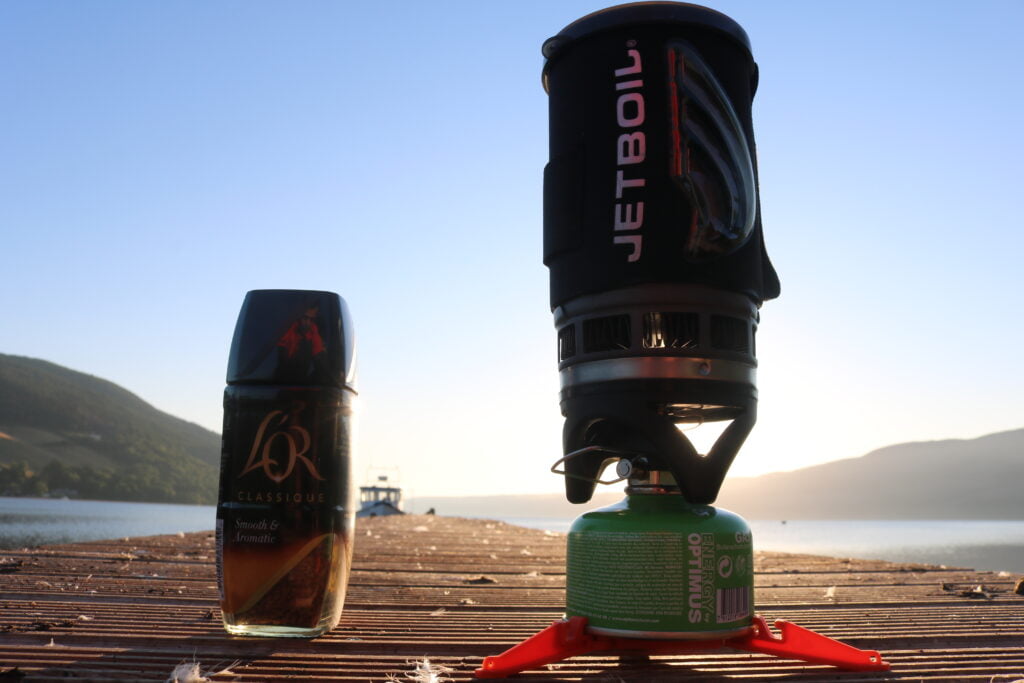
Breakfast-
Start the day right with a cup of coffee and a hearty breakfast!
- Sachets of porridge- lots of slow release energy and light-weight packaging already in portions. Added bonus, comes in a variety of flavours to keep things exciting! Also you don’t need milk.
- Avoid cereals like Weetabix- Great for energy but crumbles to dust in your pack. If you take cereal, consider the need for milk.
- Brioche or croissants are another favourite breakfast of mine.
- Sachets of coffee with the milk already added are a great way to kickstart your morning after a night in the tent. They even do vegan alternatives these days.
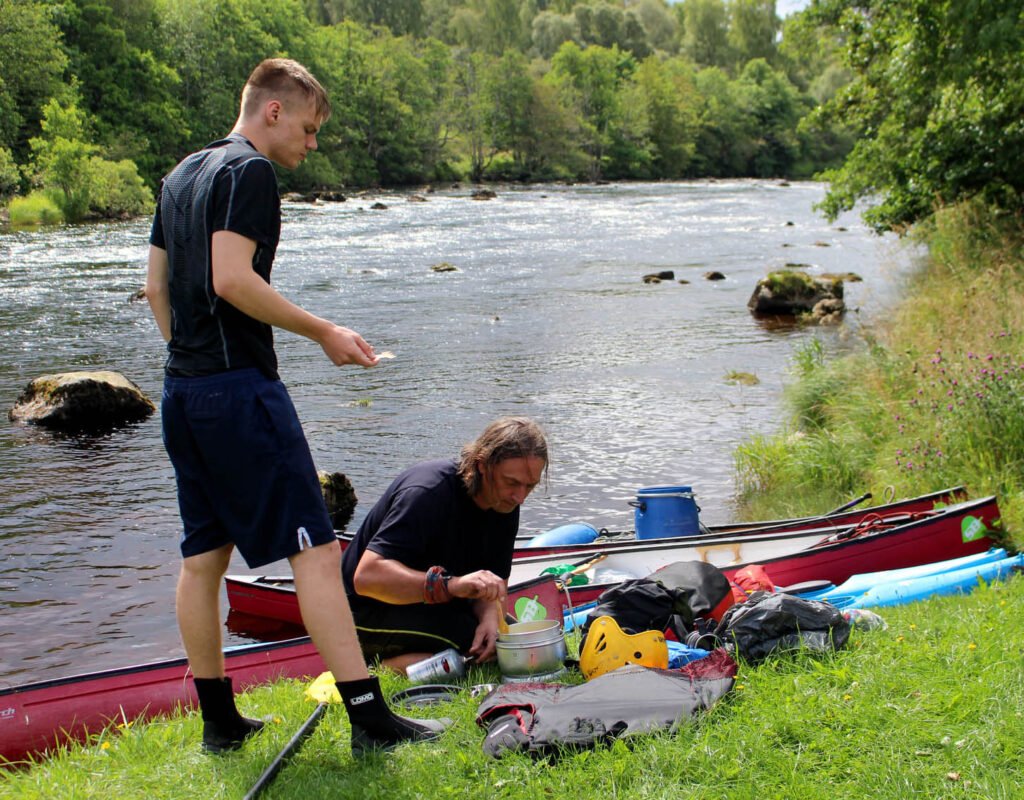
LUNCH-
- Sausage rolls are a great snack for lunch as pre-cooked meats tend to last longer. There are great vegan/vegetarian options too.
- Cold pizza is a really good idea- it lasts a couple of days and seeing as its already flat, doesn’t tend to squish.
- Cheese rolls- pre-prepared (at home). Pre-cooked meats also last well and make a good addition to a sandwich. Wraps and Pitta Breads are also a good shout.
- Hot lunches like super noodles, cuppa soup or pasta & sauce- it doesn’t take long to get your stove out to cook something up. and is a really great boost if it’s a rainy day.
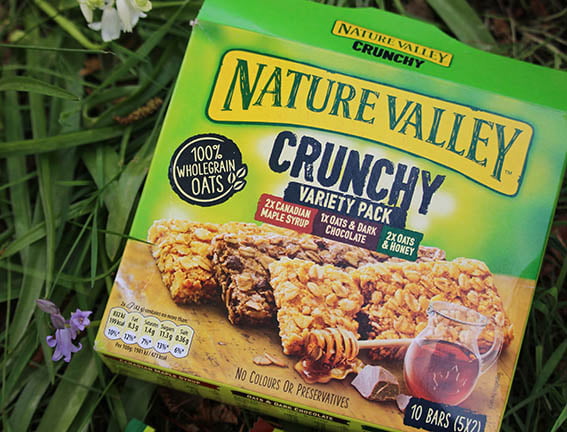
SNACKS-
- Trail mix/Mixed nuts are a fantastic high energy snack.
- Dried fruit- dried mango is my personal favourite.
- Carrots and peanut butter- A jar of peanut butter (plastic jar so it can’t smash) is always in my pack as it is a great source of energy. The carrots provide a little bite of fresh veggies into the day and they last a long time before they spoil.
- Flapjacks- high energy and don’t crush and crumble.
- Packets of sweets like jelly babies or Haribo are a really great sugar boost for when you feel energy lagging.
- Apples and oranges are that juicy little burst of fresh that can liven up our menus, without the possibility of being squashed in your bags.
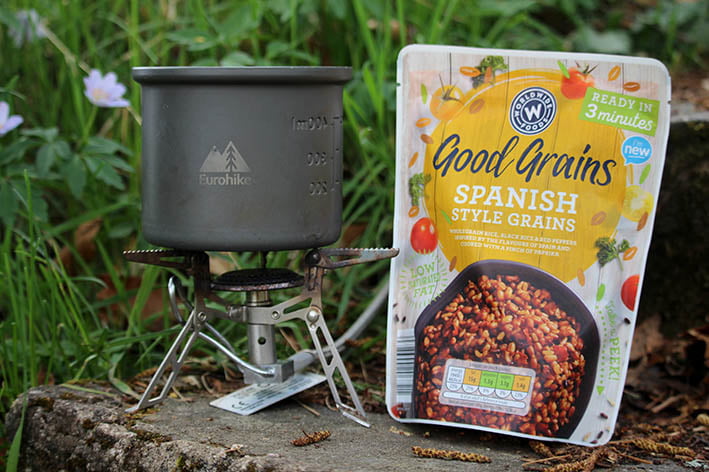
DINNER-
- Dehydrated pasta & sauce is quick, easy and light to carry, and at the end of a long day can taste like the best thing in the world. Just be careful not to pick up the low calorie options- so many of these meals have less that 300 calories, especially the noodle options.
- Pouches of flavoured grains/beans/lentils. Spanish style grains and French inspired lentil pouches were my top find of the season last year- they are filling, flavourful and make a nice change to pasta to ensure your expedition dinners don’t become monotonous.
- There is a wide range of pre-cooked expedition meals with a surprising range of options, from chicken casserole to beef Bolognese. They are a little bit on the pricey side however, so you may consider it a luxury meal for your mid way point. You can find them in most outdoor shops or online.
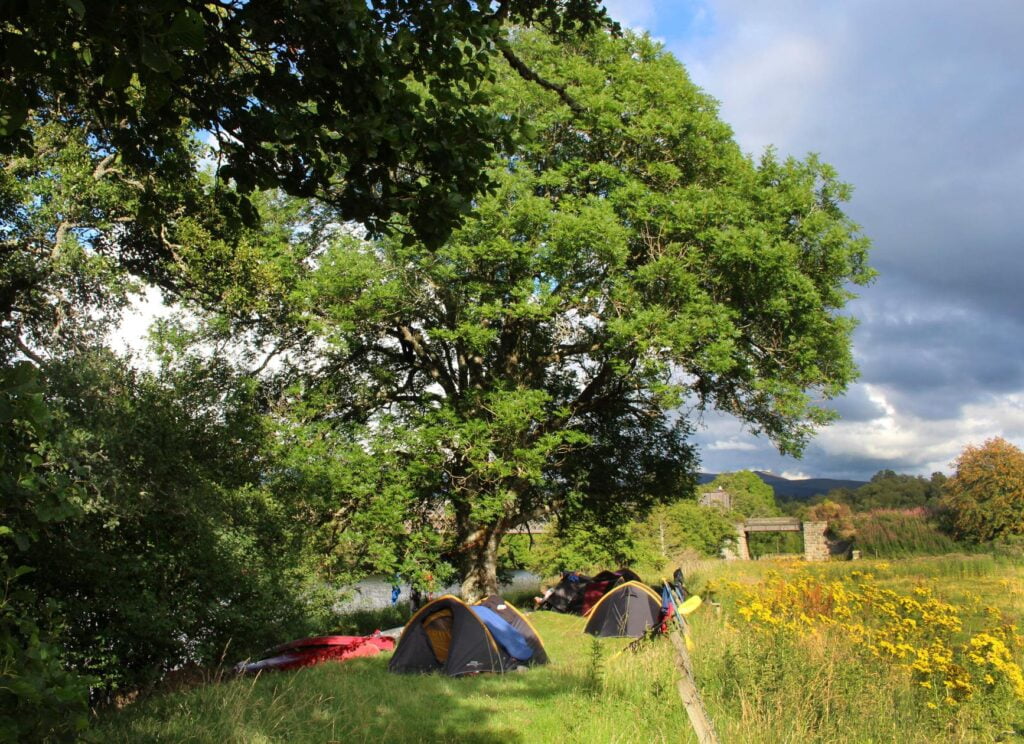
PUDDING-
End the day on a high and treat yourself!
- Chocolate provides a comforting after dinner treat and doesn’t take much space. I usually double this up with a sachet of hot chocolate too.
- Powdered custard is also light, easy and delicious.
So there you have it, a bit of advice from a seasoned expeditioner. Hopefully now you feel a little more prepared to grab that shopping trolley and cut down the time trawling the shelves trying to find inspiration for your expedition food.
Have a happy and healthy expedition 😊



